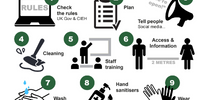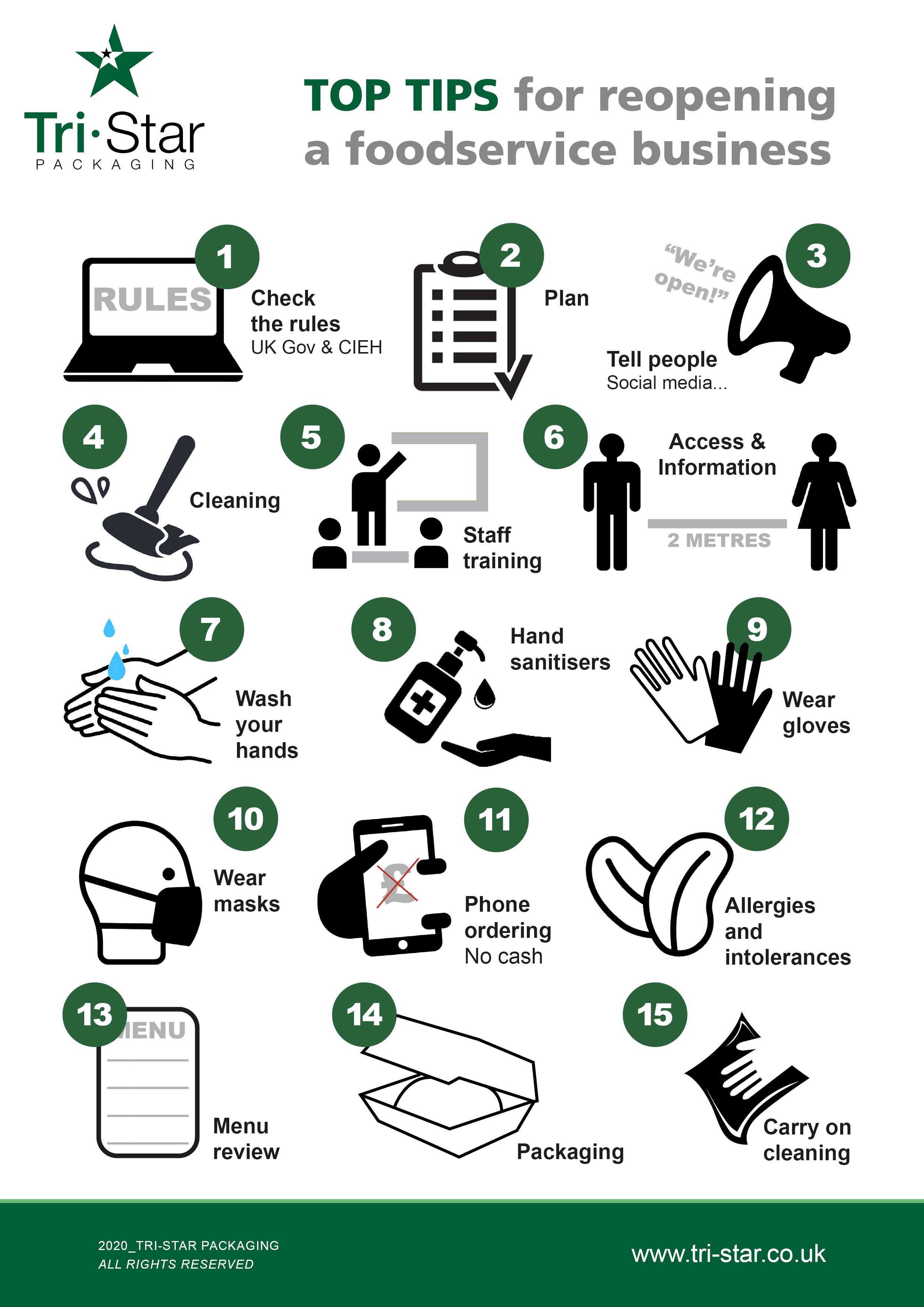Top tips for reopening a foodservice business
It seems so long ago that on the evening of 23rd March, the UK government announced in its response to the Covid-19 crisis, that most shops would close with immediate effect, with only ‘essential’ stores allowed to stay open. The full official list of these ‘essential’ stores included takeaways and ‘food-to-go’ stores, but by then many of them had already planned to close.
As lockdown began, the major food delivery businesses rapidly adopted new contact-free delivery methods and smaller local businesses were quick to replicate their methods. More recently, several high-profile fast food chains reopened a limited number of outlets. Almost simultaneously, thousands of small independent takeaways realised that if they developed a new system, they too could re-open – by moving to a pre-paid, timed collection method, while fully observing social distancing guidelines. All over the country, from pizza and burger outlets to kebab and fish and chip shops, the UK’s independent foodservice industry is slowing coming out of lockdown to feed those who are very much still in it.
“While this crisis is shocking and unprecedented, i'm really proud to represent a business which provides essential products in the areas of hygiene and food safety,” said Tri-Star Packaging Sales Director Lee Richards.
“With many core supply chains broken, we are pleased that many businesses have come to us for both products and advice. We are able to offer a
consultative approach on how to re-open a takeaway business in the right way with the right products and with the correct advice.
“Over the years we have developed a comprehensive range of foodservice packaging that is not only convenient, hygienic and fit for purpose, but also easy to store and use, therefore speeding up service – and that’s of huge benefit to a takeaway operation working with limited staff.
“We have always offered janitorial and cleaning products alongside our core packaging ranges, but these are now more in focus than ever. For example, our Cleanline range – already becoming popular in the casual dining sector – provides solutions for all cleaning applications from washing up to cleaning floors, glass and surfaces. While this crisis persists and when it eventually ends, wipes, sanitisers, soaps and gloves will be core day to day essentials alongside our food and delivery packaging ranges.
“We’re not just the packaging guys. We supply everything a foodservice business needs to operate safely and efficiently – and by default, we have become more of a one-stop shop with an adaptable product range.
“Re-opening creates so many challenges while also providing operators, large and small, with the opportunity to review their business models. Many of the changes needed right now to enable contact-free delivery and service will be long lasting, such as an almost permanent shift to cashless payment, and a massively increased awareness around hygiene. We thought it would be timely now to share our top fifteen tips for reopening” said Lee Richards.
Check the rules
UK Government and the Chartered Institute of Environmental Health (CIEH) are there to help ensure you make the right decisions.
Plan
Draw up a business plan. Before you can re-open you’ll need to ensure you have adequate stocks of food packaging and cleaning materials. You’ll also need to check availability of all your key ingredients. Then before you announce a reopening date, ensure you have allowed for time for cleaning (see 4 below) and staff training (see 5 below)
Tell people
From social media to leaflet-drops or even local radio, tell your customers that you are re-opening.
Cleaning
Before you re-open, carry out a thorough deep clean of your premises and sanitise all surfaces and hot spots, including door handles, phones, light switches and computer keyboards.
Staff training
You’ll no doubt be running a smaller team than in the past. Ensure they are trained in hygiene standards – such as hand washing (see 7 below) – and also in asking about allergies and intolerances when taking orders (see 12 below).
Access and information
You’ll need to find a way to enable customers to collect their orders without contact. Simply putting a long table in your doorway so that orders can be placed in a container and pushed out to them is one idea. Put a hand sanitiser there too, that will reassure customers. Put up a prominent sign stressing the importance of social distancing while queuing to collect their orders.
Wash your hands
Ensure that all staff understand the need for thorough and regular hand washing. The Centers for Disease Control and Prevention recommends these five steps
Hand sanitisers
Even with a careful and regular hand washing routine in place, making hand sanitisers available for your staff and customers just makes sense.
Wear gloves
Wear gloves in food preparation and service and remove them to wash your hands regularly. Always dispose of gloves and put on a new pair after hand washing.
Wear masks
Even though guidance varies around the importance of wearing masks, it’s best practice in food preparation – and provides additional reassurance for customers.
Phone ordering
Customers should pre-order by phone and pay in advance if possible. Do not take orders at your door and do not take cash.
Allergies and intolerances
Follow the CIEH advice around allergen identification, communication and labelling.
(https://www.cieh.org/media/4070/covid-19-food-delivery-and-takeaway-guidance.pdf)
Menu review
Review your menu and reduce your offering to exclude overly complicated or time-consuming dishes. Your customers will quickly tell you if you need to review those decisions.
Packaging
Choose the correct safe, hygienic, food packaging that’s quick to assemble – and where possible advise customers how to dispose or recycle it when they get it home.
Carry on cleaning
Create a regular and thorough cleaning routine.






Leave a comment